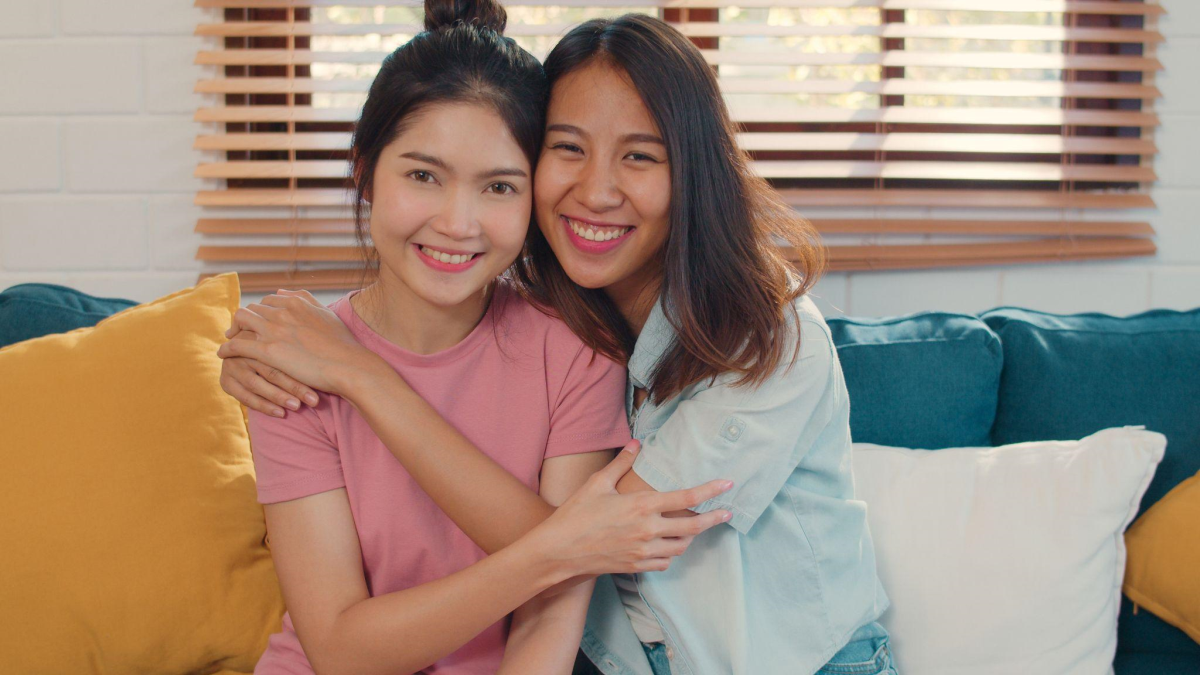One summer evening, Huyen, 42, from Ho Chi Minh City, was taken aback when her 13-year-old daughter slammed her bedroom door shut after saying, "Mom, don't come into my room anymore." While nothing serious had occurred, Huyen understood that her daughter was entering adolescence – a phase where boundaries are tested: from emotions and physical changes to the mother-daughter relationship.
As her daughter started shying away from her hugs, feeling embarrassed about her changing body, and withdrawing during conversations, Huyen realized that maintaining closeness wasn't as straightforward as before. "I felt confused when my daughter was no longer the little girl who loved being close to me," she shared.
Similarly, Mai, a 40-year-old middle school teacher in Phu Tho, also had to adapt when her daughter turned 14. A widow, Mai is both mother and father to her child. Despite years of teaching teenagers, she felt bewildered by her own daughter's transformation. "She started paying more attention to her appearance, her moods fluctuated, and sometimes she'd shut herself in her room for hours without speaking to me. As a single mother, I worried that I wasn't doing enough for her," Mai confessed.
Both mothers learned from experience that what their daughters needed most during this time wasn't lectures, but empathy and a willingness to listen. "My daughter refused to share anything until I began telling her about my own teenage years – from the confusion about bodily changes to the pressures of school and friendships. Gradually, she opened up," Huyen explained.
 |
Many mothers are choosing to befriend their teenage daughters, rather than imposing rules and control. Image: Vecteezy |
Many mothers are choosing to befriend their teenage daughters, rather than imposing rules and control. Image: Vecteezy
From then on, they had more open conversations about topics Huyen had previously hesitated to discuss, including reproductive health and common sexually transmitted infections like HPV. While watching a documentary about cervical cancer with her daughter, Huyen carefully explained the HPV virus, how it spreads, and the importance of early prevention.
"Initially, she was shy and avoided the topic, but I told her it was normal, that my mother and I used to talk about everything. Eventually, she agreed to listen," Huyen said. For her, the conversation wasn't just about conveying information; it was a way to connect with her daughter as she learned to listen to and care for her own body.
Speaking about HPV, Mai recounted recently seeing a TV commercial featuring singer Hari Won, who had cervical cancer caused by HPV. The line "everyone can control their own life" in the video resonated with her. It wasn't just a medical warning; it was a gentle opening for a conversation about the risks of adolescence, including HPV.
Mai shared the video with her daughter, surprised to find that she not only knew about HPV but also agreed with her mother about the importance of proactive healthcare. For Mai, this moment bridged the gap between them – from avoidance to understanding, from silence to sharing.
HPV (Human Papillomavirus) causes almost 100% of cervical cancer cases. According to the World Health Organization (WHO) in 2018, a woman dies from cervical cancer every 2 minutes globally. In Vietnam, Globocan reported over 4,600 new cases and over 2,500 deaths from cervical cancer in 2022. This report also states that cervical cancer is the second most common cancer worldwide among women aged 15 to 44.
The body can clear HPV in most cases. However, persistent infections can lead to cancer and related diseases. Besides cervical cancer, HPV is also linked to other conditions like anal cancer and genital warts.
The WHO (2020) recommends that ages 9 to 14 are the ideal time for HPV vaccination, before any exposure to the virus. Early intervention helps the body develop optimal immunity, reducing future risks.
Doctors note a trend toward younger ages of sexual activity, while many parents remain unprepared to discuss sex with their children. "Sex education isn't just for adults; it should start during adolescence when young people need to understand how to protect themselves," advised one expert.
Instead of maintaining distance or just offering advice, Huyen and Mai chose to become their daughters' companions. They don't shy away from "sensitive" topics, but patiently find gentle and approachable ways to discuss puberty, the challenges of adolescence, reproductive health, and disease prevention.
"I don't tell my daughter what to do, like 'you must protect yourself' or 'don't fall in love too early.' Instead, we have everyday conversations: what happened at school, what her friends are saying, and what she thinks about taking care of herself," Mai explained. For her, educating her daughter about the physical and emotional changes of adolescence, reproductive health, HPV, and preventive measures is part of teaching her self-love and respect.
Initially hesitant to discuss prevention or illnesses, both daughters now actively ask questions, seek information, and even share it with their peers. "I believe that when a child feels trusted by her mother, she learns to trust herself – and that's the first step toward self-protection," Huyen affirmed.
The Dan
Individual action is essential to raise awareness about prevention in the community "For a Vietnam free from the burden of HPV". Consult a healthcare professional and learn more about HPV at hpv.vn.












